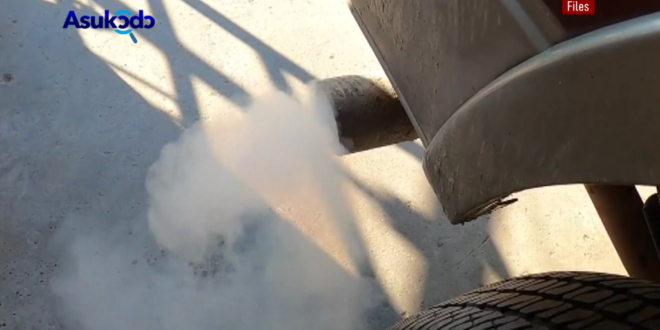It is the rush hours of the day; and, as expected, many vehicles are fighting for space to make it home in time. Amidst the chaotic scenes on Ghana’s busy roads is often the unpleasant smell of thick smoke from hundreds of unserviceable vehicles.
So disgusting can this be that it can lead to instant coughing, aside from the many health hazards of the smoke. But why is there so much smoke in town?
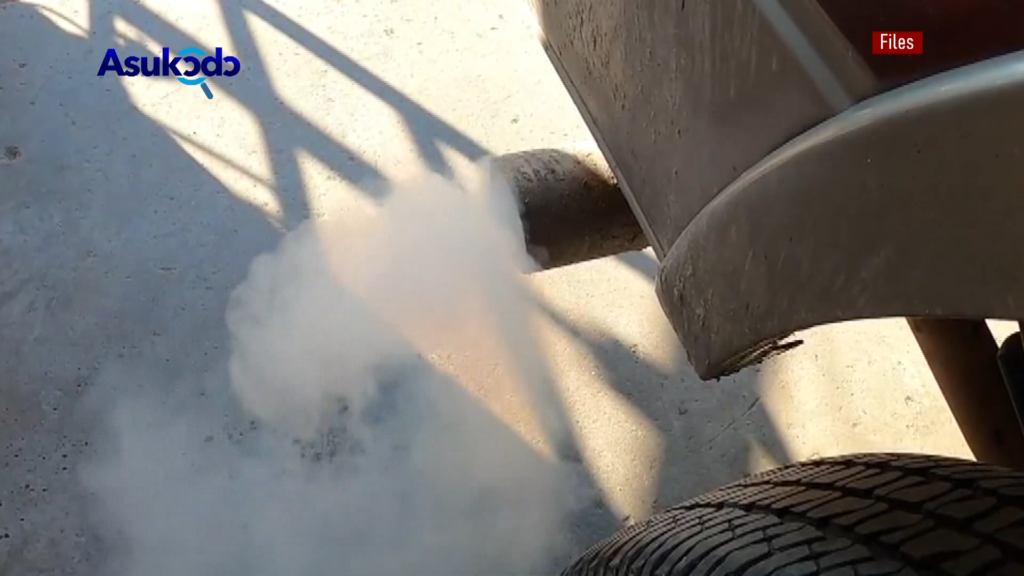
Adom News’ Gershon Mortey delved deeper and uncovered a very worrying development of rampant stealing of the converters of vehicles of unsuspecting car owners, a major cause of the offensive car smoking.
The stealing of exhaust converters (which are also called catalytic converters) from cars is gaining increasing popularity among criminals – not just in Ghana – but, globally.
Those at major risk are car owners who take their cars to mechanic shops and business people who own car rental companies.
Some mechanics even target cars that are parked at hide-out spots, where they jack the vehicle up and cut off the converter, even in broad daylight.
These criminals have people they supply these metals to for instant rewards, according to Adom News’ investigations.
What is a converter?
An exhaust or catalytic converter is a device in a vehicle’s exhaust system that changes toxic pollutants into less harmful gases before they are expelled from the automobile.
It is sought after largely due to the climbing prices of the precious metals such as platinum, palladium and rhodium found inside them.
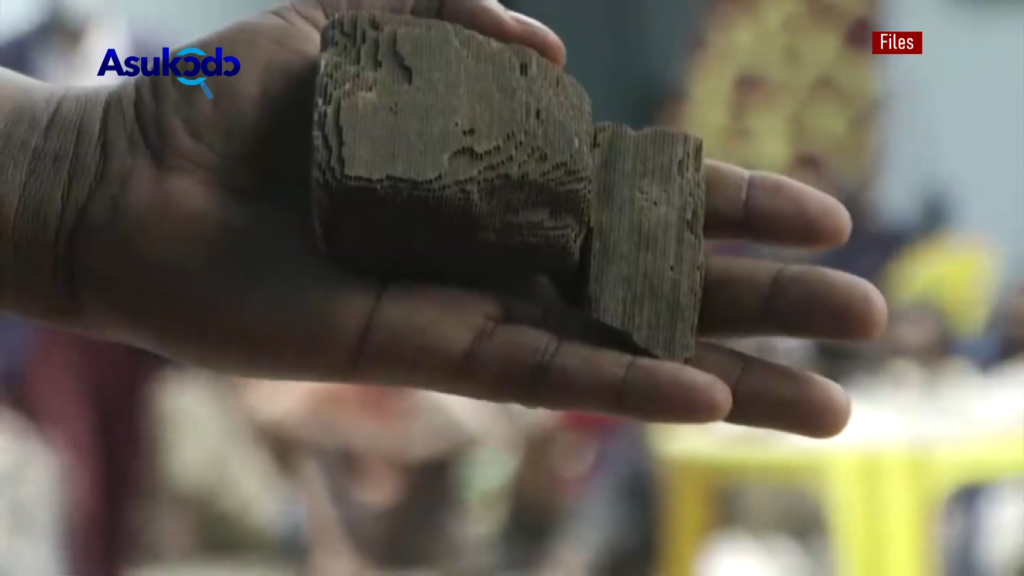
The precious metals within catalytic converters are relatively easy to steal by a determined criminal. All they have to do is crawl under the car or, if it’s too low, use a jack to raise it. Then, a saw, electric or manual, can be used to cut the converter from below the vehicle.
The criminals take the converter to a third party, who is then able, through their various connections, to transfer that to a legal recycler, who then gives them the cash for the actual converter itself.
Canada
This crime is worldwide. In Canada, for example, police said converter thefts rose from 300 reported incidents in 2020 to 1,014 in just the first eight months of 2021 in the city of Calgary alone.

In a related development, a new craze for a drug derived from crushed vehicle exhaust filters is battling authorities in Congo. It has further triggered a campaign to exterminate the drug and a related rash of car part thefts.
In September 2021, per a report by Reuters, police rounded up and paraded nearly 100 alleged dealers and users of the drug “bombe”, which means powerful in the local Lingala language, following a call to action by Democratic Republic of Congo’s President Felix Tshisekedi.
Young men seeking to get high blend the crushed exhaust filters with a couple of crushed pills – using the back of a spoon, before snorting the “bombe” mixture.
Within minutes, they sway slowly, scratching themselves in an unresponsive state that experts in Congo say can cause users to stand motionless for hours, or even sleep for days.

Syndicate in Ghana
With this statistic in mind, Adom News decided to find out if the theft is booming in the black market of Ghana too; and, the result was alarming!
The visit started at Baa Yard, a popular area off the Awoshie N1 stretch. There, the investigative Crew learned of a hideout built by mechanics who had specialised in cutting off the converters in minutes.
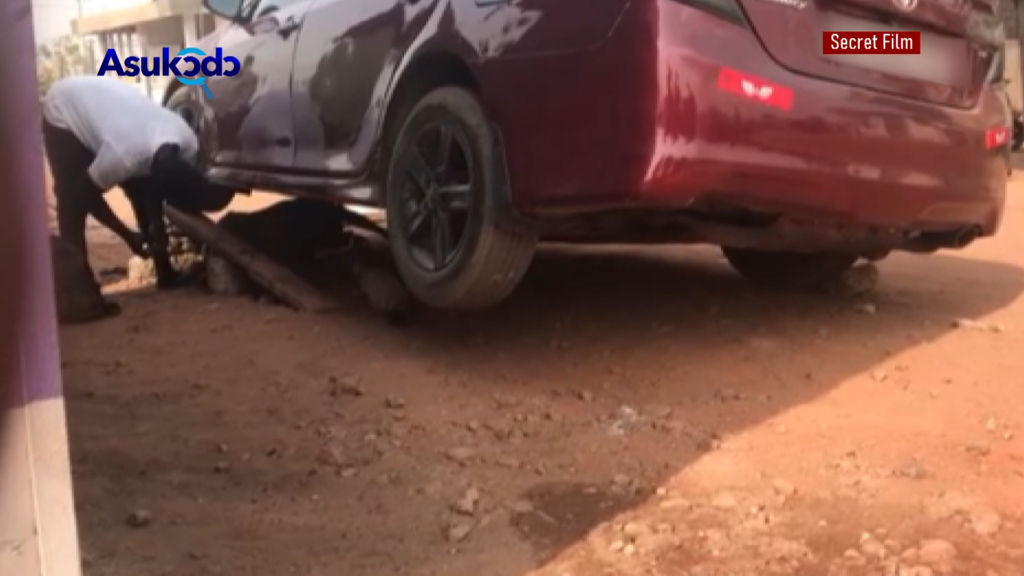
This place is more of a third-party source because they also have to take the converters to a middle party before the end-off buyer.
The team then chanced on another hardcore zone at Abossey Okai in the Greater Accra Region. Here, they cut the whole exhaust system and take out the converter before they replace it with a fake converter so the owner of the car won’t notice the theft early. This makes it difficult to know right on when the car returns to the owner.
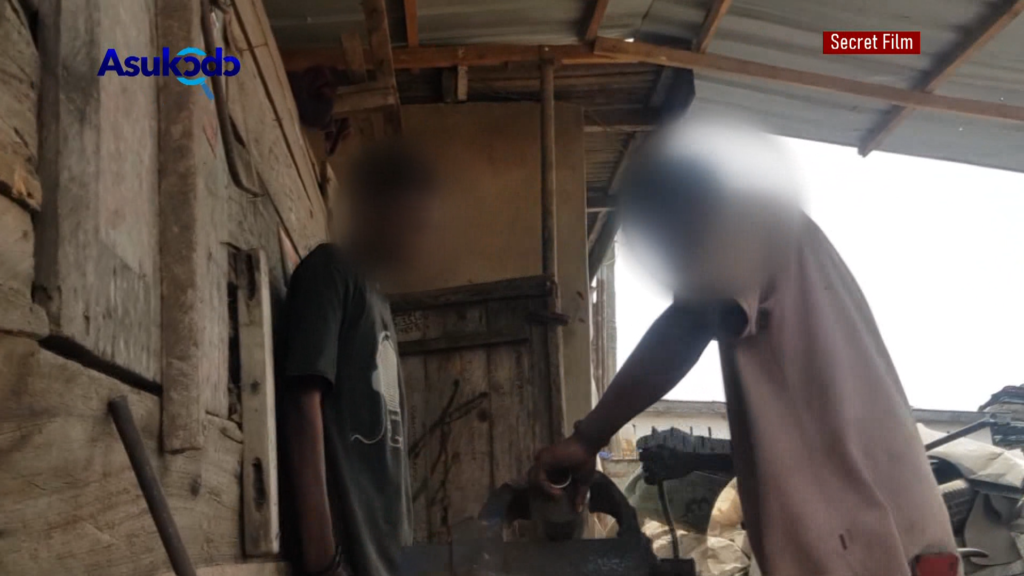
On the second visit to Abossey Okai, the Team found a dealer who had specialised in buying and selling converters.
To be sure he was into the business, the Team decided to purchase one from him: the price was GHC 900.00! Later, it was realised it wasn’t an original piece that is why the price was reduced for purchase.
At the same Abossey Okai, there is a car exhaust dealer, who is genuinely into the car exhaust business. This person sells to those who have lost theirs to criminals. Luck would run out for him, however, when the Team spoke to him on the black market happening on the ground. He unwittingly gave out ways and means to get converters out without car owners’ notice.

At Darkuman, some of the sellers, often Nigerians, roam on motorbikes to deal with some mechanics around the area popularly called Cable.
Cars and estimated prices of their converters
After numerous rounds, the investigative crew researched on the prices of popular cars that are usually targeted:
Daewoo Matiz converters go for GH 2,500.
Hyundai Elantra converters sell for around GH¢ 2,500 to GH¢ 3,500.
Converters of Toyota saloon cars sell for around GH¢ 2,000 to GH¢ 4,000; sales largely depend on the year of production of the cars. Price increases when the car’s manufacturing date is current.
However, since it’s well-known that most cars have catalytic converters, it makes every car a potential target. Owners of four-wheel drives (Land Cruisers, Jeeps etc.) and super fancy cars such as (Mercedes Benz, Range Rovers etc.) aren’t exempted from becoming victims.

Kokomlemle, ATTC
At the ATTC section of Accra’s Kokomlemle suburb, there are some dealers known to buy from first-hand sellers. Adom News decided to sell one ‘fake’ converter to them and they detected it right away. Surprisingly, they still offered to buy the converter – albeit, at a price lower than what a genuine converter sells for.
The kingpin
After the observations, it was realised that there is a Nigerian guru who is the mastermind and stronger middleman who supplies the main end-off buyer, who is alleged to be a Caucasian.
They work together; and all the dealers at Abossey Okai, Baah Yard, Darkuman, Kokomlemle, and even those in other regions sell to this Nigerian man, who in turn sells to this Caucasian.
The converters are transported through Aflao to Togo.
Watch full video below:
SOURCE: Gershon Mortey
 Home Of Ghana News Ghana News, Entertainment And More
Home Of Ghana News Ghana News, Entertainment And More
